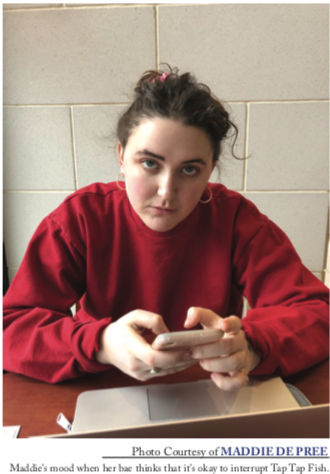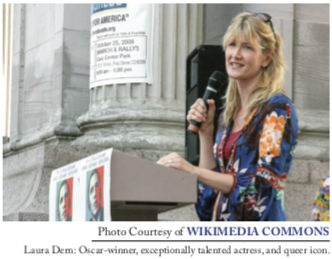By Thomas Stubbs, Staff Writer

When I finished “Lemony Snicket’s a Series of Unfortunate Events,” Netflix’s new adaption of the celebrated children’s series, I was convinced I didn’t like it. I couldn’t understand why. The teleplays for each of the eight episodes were written by Daniel Handler — Lemony Snicket himself—while Barry Sonnenfeld, Handler’s first and only choice to helm the production, was the man in the director’s chair. I had to conclude that this was exactly what Mr. Handler wanted the small screen version of his novels to look like, so why did the whole thing feel so wrong?
It wasn’t the show. It was me. Allow me to explain.
I discovered “Lemony Snicket’s a Series of Unfortunate Events” in the fourth grade. The series took up an entire row of my classroom’s bookshelf, a bank of sturdy hardcovers amid so many pocket-sized paperbacks. They looked important and irresistibly sensational. Not sure what I was in for, but too curious to care, I opened “The Bad Beginning” to Chapter 1. These two sentences were there waiting for me:
“If you are interested in stories with happy endings, you would be better off reading some other book. In this book, there is not only no happy ending, but no happy beginning and very few happy things in the middle.
I was hooked. I spent the next month becoming intimately acquainted with the plight of Violet, Klaus and Sunny Baudelaire, three orphans who find themselves in perpetual peril at the hands of the villainous Count Olaf, who is after the enormous fortune their deceased parents left behind. I loved those books, not so much for their unique tone — they presented their hammy melodramas with a bone-dry sense of humor that I mostly didn’t get — but because of their unique perspective. The Baudelaires were plucky resourceful protagonists. They had to be, because the adults in their lives were all either reprehensible monsters or blithering idiots, and the universe seemed uniquely committed to barring them from happiness. Their story perfectly articulated what it is like to be a child first trying to make sense of the world’s cruelties and contradictions. From a child’s perspective, the world can be an opaque, disorienting place where fate lashes out at you without warning, filled with adults who say and do inexplicable things for indecipherable reasons, even as they teach you that our world is one of absolutes: good and bad, right and wrong. The Baudelaires had discovered the gray area in between. I felt for them. I knew what a scary place that was.
You can imagine my disappointment, then, when the Netflix show turned out to be a laugh fest. Neil Patrick Harris’s comic timing has never been sharper, but his skills, I thought, were ill-suited to Count Olaf, a character whose appearance in the books used to make me shiver. Barry Sonnenfeld, meanwhile, seems to have taken a page out of Wes Anderson’s book, filling his frame with blatantly artificial, candy colored sets, conjuring up a world that is far too whimsical to be threatening. Patrick Warburton’s performance as Lemony Snicket convinced me that the comedy was not an accident. You don’t get Kronk from “The Emperor’s New Groove” to narrate your TV show unless you want that show to be relentlessly funny. How could the series have gone so wrong? What could have possessed Mr. Handler to turn his macabre meditation on what it’s like to be a child in an adult’s world into an absurdist farce?
Then I understood. When I read “A Series of Unfortunate Events,” I was a child in an adult’s world. I saw the story through the eyes of the Baudelaires. When the adults around them refused to listen to reason, I shared their confusion and frustration. When the deck of fate always seemed stacked against them, I joined them in protesting the injustice of the universe.
Now, more than a decade later, I’ve become an adult, all too aware of my own quirks, failings and contradictions. I still mourn injustice, but the fire is gone from my indignation, snuffed out by the cynicism that comes with age. I understand mortician humor now. I’ve learned to laugh at the inexplicable things that happen in our world, just as I’ve learned to laugh at the inexplicable misfortune of the Baudelaire children. I laugh now for the same reason that I took their story so seriously as a youngster: because I know that Mr. Snicket speaks the truth.
Netflix’s “A Series of Unfortunate Events” is lovingly crafted and superbly entertaining. Go watch it. But a word of warning to those of you who read of Violet, Klaus and Sunny’s suffering with a somber heart: you may be surprised by what you now find funny.






























